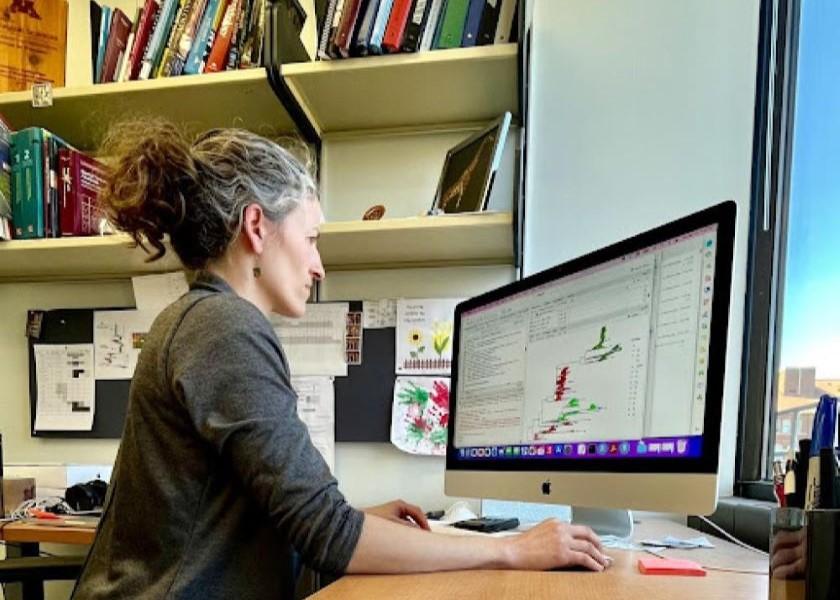$800,000 USDA Grant to Create Integrative Data Platform for Major Swine Diseases

By the University of Minnesota College of Veterinary Medicine
A team of University of Minnesota College of Veterinary Medicine researchers led by Kimberly VanderWaal was recently awarded a 4-year, $800,000 Agriculture and Food Research Initiative (AFRI) grant from the United States Department of Agriculture (USDA) and the National Institute of Food and Agriculture (NIFA). The study aims to create an “integrative data science” platform to predict the ability of PRRSV-2 variants to provoke an immune response and spread across farms. The platform will use interconnected machine learning tools from structural biology, computational immunology, and genomic epidemiology.
The circulation of porcine reproductive and respiratory syndrome virus-type 2 (PRRSV-2) is a primary constraint to swine health and production. PRRSV-2 is a rapidly evolving RNA virus impacting roughly 30–50% of breeding farms. With an economic burden of over $600 million in the U.S. alone, PRRSV-2 is the most important endemic disease to the U.S. swine industry.
The rapid evolution and diversity of PRRSV are two key complicating factors to controlling the disease. The additional circulation of numerous genetic variants create recurring epidemic-like waves that spread quickly and widely through the swine industry. Farm-level PRRSV management includes using live vaccines and/or purposeful inoculations to build immunity. The decision-making around PRRSV management on farms usually includes viral sequencing to find the variant(s) that exist on the farm. As a result, PRRSV is among the most sequenced viruses in the world. While swine producers sequence thousands of viruses annually as part of their disease management efforts, they are still frustrated by the existing limitations in translating genetic data to phenotypic insights relevant for decision-making.
The project team, which also includes Maxim Cheeran, Dr. Cesar Corzo, and Samatha Lycett (Roslin Institute, University of Edinburgh), will identify variants of closely related genetic sequences within large-scale databases. They will then quantify differences in the structure of proteins encoded for by the genetic sequences, particularly looking at differences in proteins targeted by antibodies from the pig immune system. Using machine learning, these insights will be linked to epidemiological data to help understand how genetic changes translate to the ability of new variants to spread widely across pig populations.
In the end, the researchers plan to create a platform that allows stakeholders to classify and contextualize their own sequences within the broader immunological diversity of the virus. This integration of back-end analytical methods and front-end visualization tools will improve interpretation of sequence data and support decision-making about appropriate disease management and immunization practices within the swine industry.
“We know that not everyone has the expertise to perform in-depth analyses of virus sequence data themselves,” says VanderWaal, “ We hope that this research will create accessible tools that allow swine health professionals to better interpret sequence data generated on their farms.”







